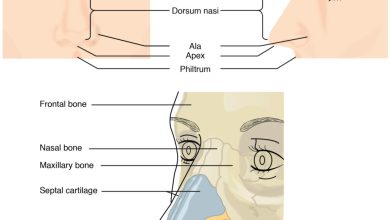The Various Symptoms of Alzheimer’s Disease

Alzheimer’s disease is a progressive disorder that affects the brain. It is the most common form of dementia, accounting for 60 to 80 percent of cases. Alzheimer’s disease gradually destroys memory and thinking skills, and eventually even the ability to carry out the simplest tasks. Alzheimer’s symptoms stages vary, but there are some general symptoms to be aware of if you have a loved one suffering from the disease. Keep reading to learn what they are!
Changes in Sleep Habits
There are many changes in sleep habits that can be a sign of Alzheimer’s disease. In the early stages of the disease, people may find they are sleeping more than usual. As the disease progresses, people may find they are having trouble sleeping, or they may wake up frequently during the night. In the late stages of the disease, people may spend most of their time sleeping. Changes in sleep habits can also be a sign of other health problems, so it is important for the individual to see a doctor if you are having changes in their sleep habits.
Mood and Personality Changes
Mood and personality changes are often early signs of Alzheimer’s. As the disease progresses, people with Alzheimer’s may become agitated, depressed, or even paranoid. They may have difficulty with impulsiveness and making decisions, and may become more withdrawn and uninterested in socializing. In the final stages of the disease, people with Alzheimer’s may become completely unable to care for themselves and may lose the ability to speak.
Limited Mobility
There are many different signs and symptoms of Alzheimer’s disease, and limited mobility is one of them. This is because Alzheimer’s disease causes the brain to shrink, which in turn can lead to a loss of muscle mass and strength. This can make it difficult for someone with Alzheimer’s disease to move around, which can then lead to a decline in their overall health and well-being. In addition, limited mobility can also cause someone with Alzheimer’s disease to become isolated, as they may not be able to get out and socialize with friends and family as they once did. This can lead to a feeling of loneliness and depression, which can further aggravate the overall condition.
Incontinence and Difficulty Swallowing
There are a number of different signs and symptoms that can point to Alzheimer’s disease, including incontinence and difficulty swallowing. For many people, these two symptoms are some of the earliest indicators that something is wrong. Incontinence can be caused by a number of factors, including changes in the brain that affect the muscles used to control urination. As Alzheimer’s progresses, these changes can cause urine leakage, both during the day and at night. Difficulty swallowing, or dysphagia, can be caused by a number of factors as well, including damage to the nerves and muscles used for swallowing. This can lead to problems swallowing foods and liquids, which can cause choking, gagging, and even aspiration pneumonia.
Forgetfulness and Confusion with Time and Place
People with Alzheimer’s disease may experience forgetfulness and confusion with time and place. For example, they may not remember what day it is or where they are. This can be very frustrating for the person with Alzheimer’s and their loved ones. Alzheimer’s disease is a type of dementia that leads to a decline in mental abilities. The most common early symptoms are forgetfulness and confusion with time and place. As the disease progresses, people may have trouble speaking, understanding, and reasoning.
Overall, understanding the various symptoms of Alzheimer’s disease is important because it can provide an early diagnosis of the disease. Overall, these symptoms are important because they can help to improve the quality of life for those who suffer from Alzheimer’s disease.
What are the two main physical symptoms of Alzheimer’s?
Alzheimer’s disease is a progressive and irreversible condition that affects the brain, leading to cognitive decline and memory loss. While there are a variety of symptoms associated with Alzheimer’s disease, two of the most prominent physical symptoms are problems with movement and changes in sleep patterns.
One of the physical symptoms of Alzheimer’s disease is problems with movement. This can include difficulty with balance, coordination, and mobility. As the disease progresses, individuals may experience tremors, rigidity, and difficulty with fine motor skills such as buttoning clothes or tying shoelaces. These movement problems can have a significant impact on an individual’s daily life, making it difficult to perform basic tasks and leading to increased dependence on others for assistance.
Another physical symptom of Alzheimer’s disease is changes in sleep patterns. As the disease progresses, individuals may experience insomnia, fragmented sleep, and daytime sleepiness. These changes can be disruptive to an individual’s daily routine and can impact their ability to function during the day. Additionally, sleep problems can exacerbate other symptoms of Alzheimer’s disease, such as memory loss and cognitive decline.
Overall, while there are a variety of symptoms associated with Alzheimer’s disease, problems with movement and changes in sleep patterns are two of the most prominent physical symptoms. These symptoms can have a significant impact on an individual’s daily life and should be closely monitored by healthcare professionals.




